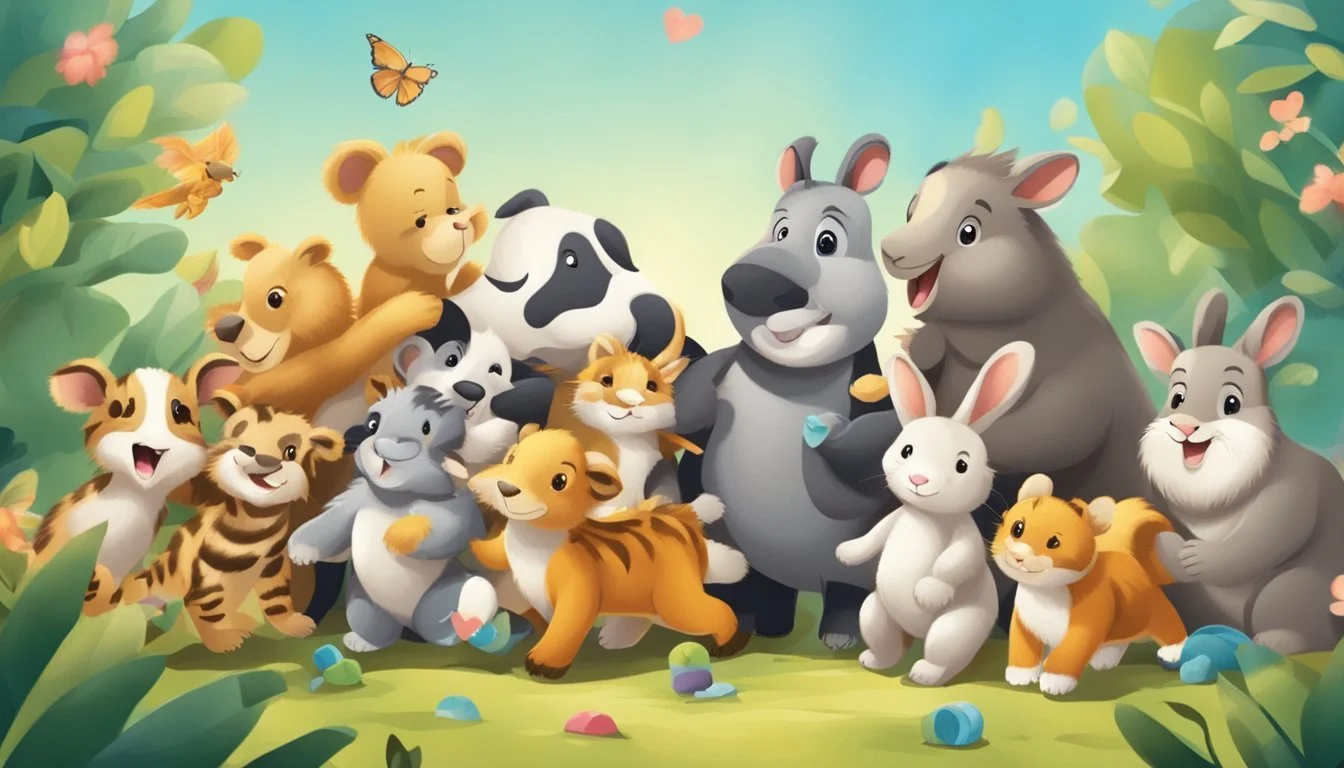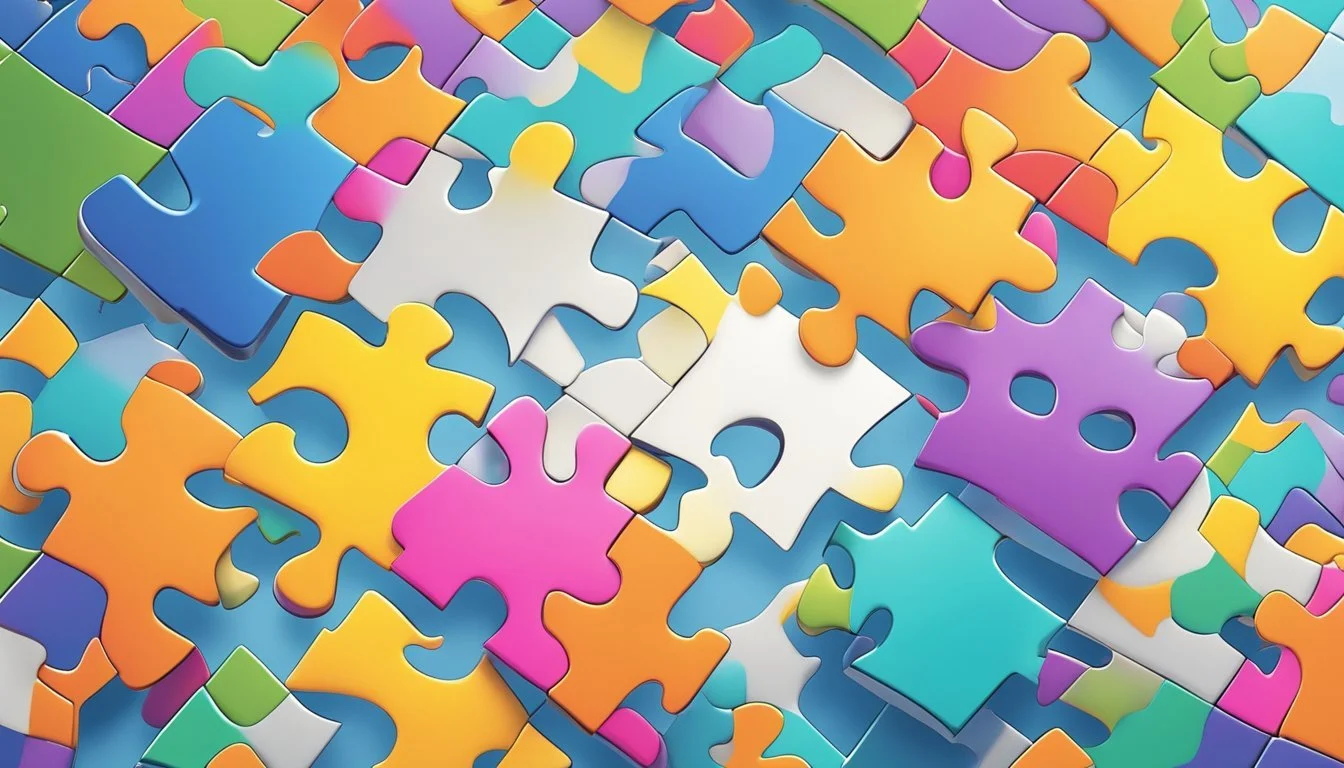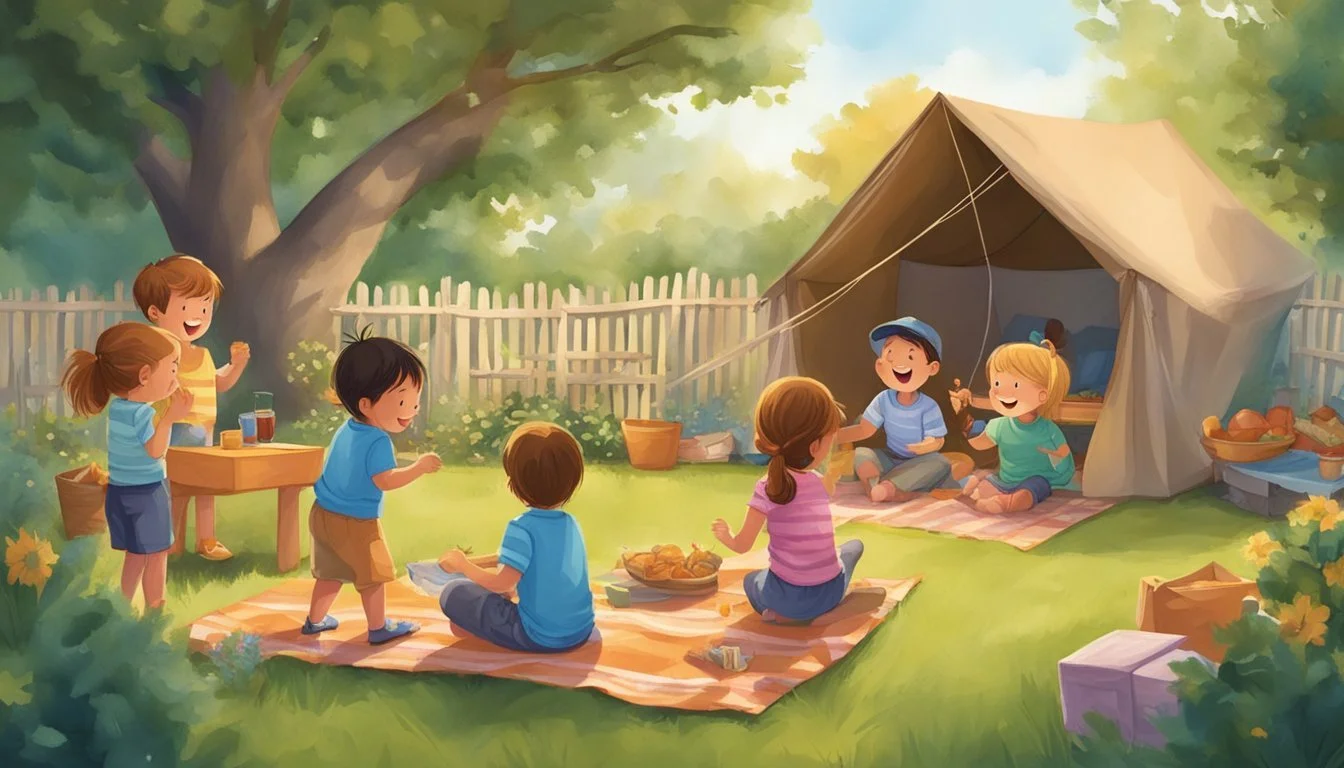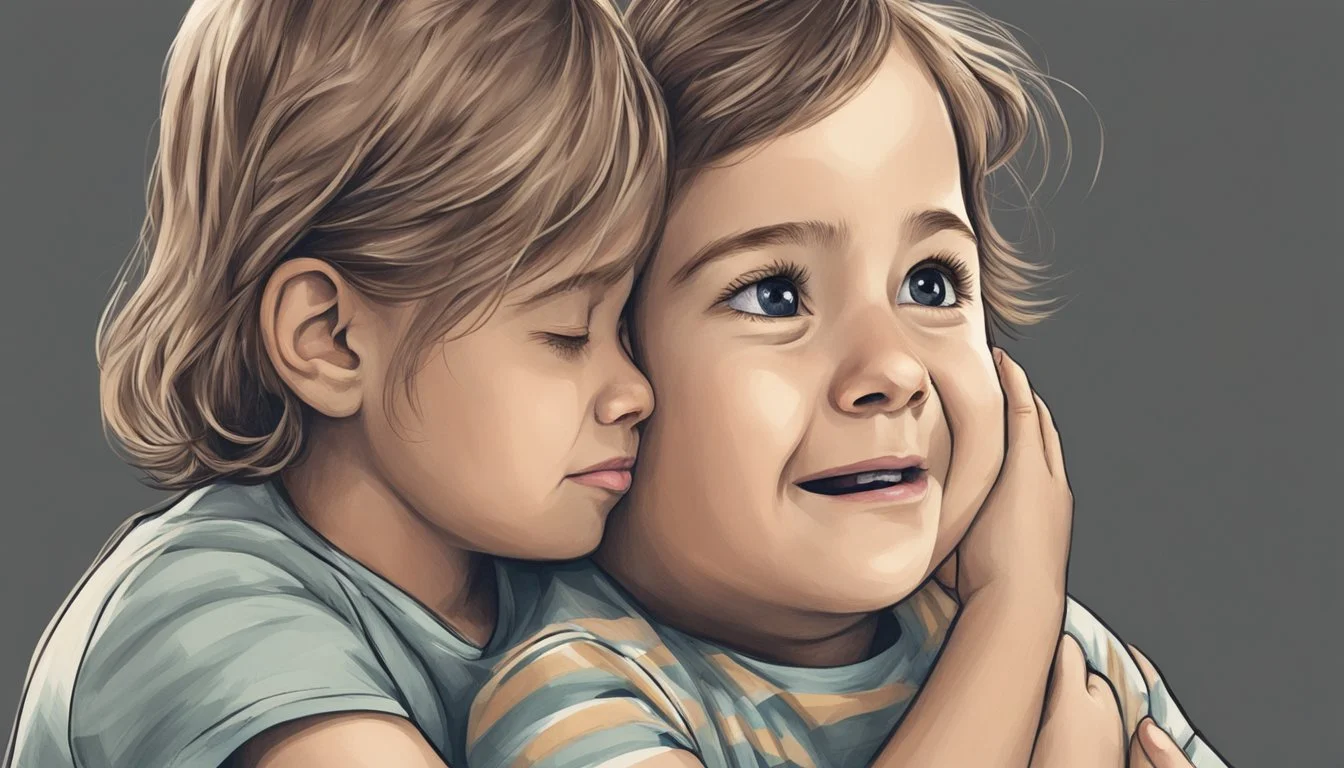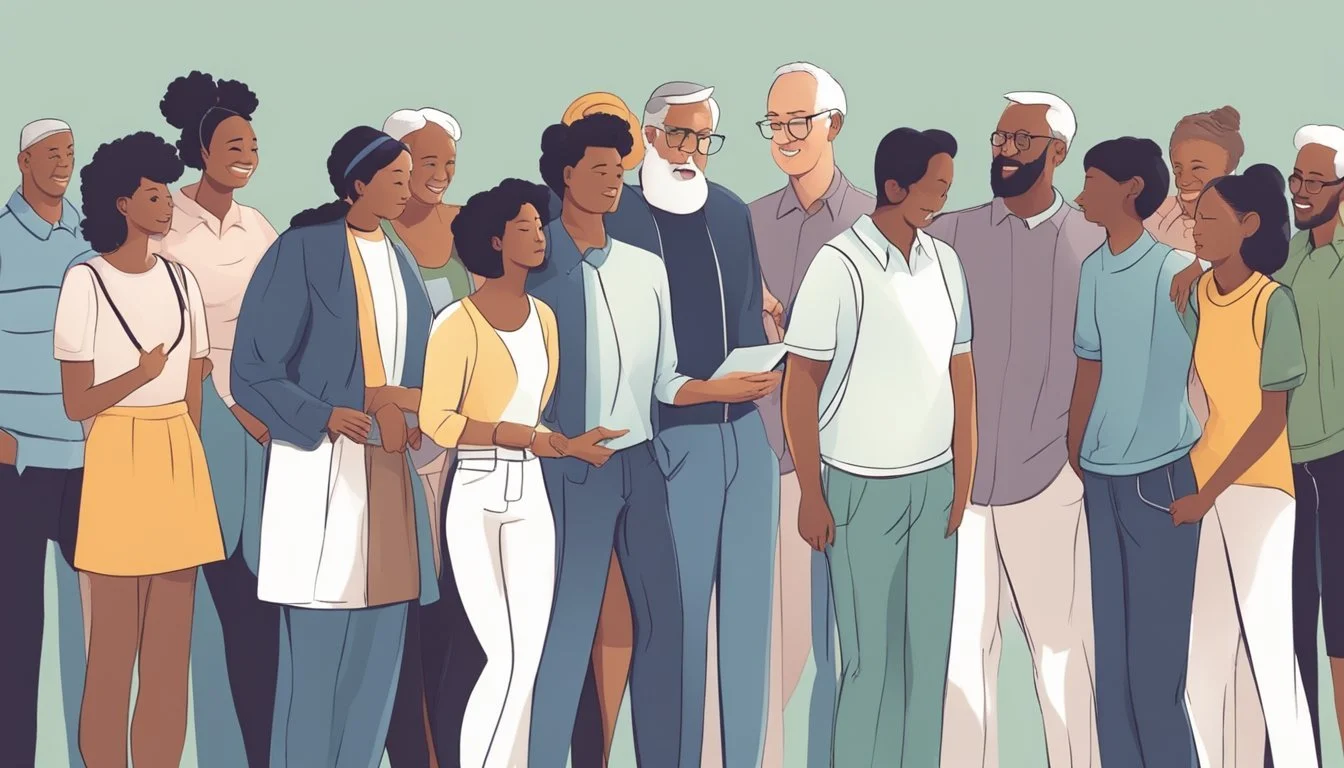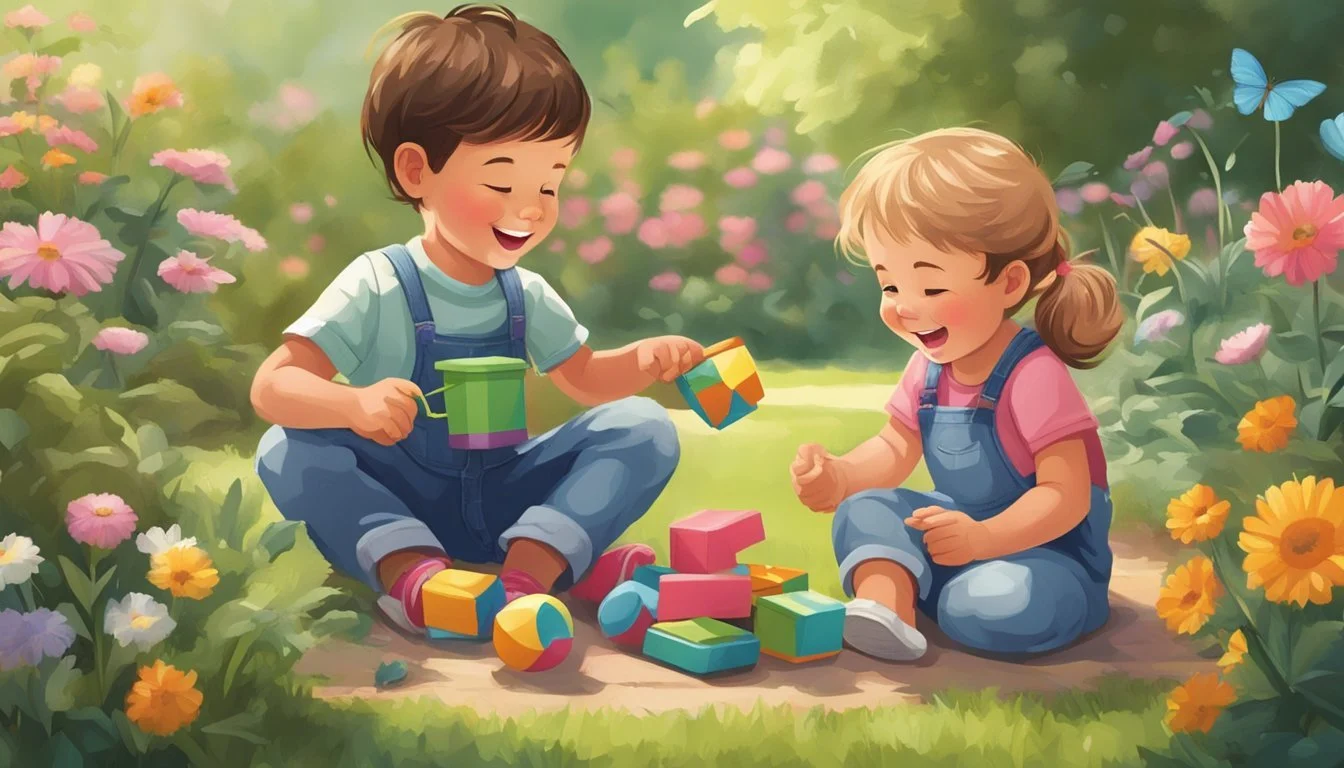12 Reasons Why Your Siblings Are Your First and Forever Friends
The Unbreakable Bond
Relationships shaped during childhood often have a lasting impact, and few relationships are as deeply rooted as those shared between siblings. Growing up together, siblings experience life's early stages side by side, forging connections that withstand the test of time.
Why do siblings often become our most enduring friends? These bonds frequently offer a unique blend of shared history, mutual support, and profound understanding. Through numerous ups and downs, siblings stand by each other, making the relationship both resilient and invaluable.
1) They know your secrets and still accept you.
Siblings grow up together, sharing many experiences that lead to a deep understanding of each other. This shared history includes knowing each other's secrets, from childhood mischief to more significant life choices.
They have seen the mistakes and triumphs and have a unique insight into what makes you tick. Their acceptance comes from this profound understanding and empathy.
Even when you've faltered, your siblings have likely seen you at your worst. Their ability to look past these moments and accept you unconditionally is part of what strengthens the bond.
Your siblings' acceptance provides a sense of security and reassurance. This acceptance can foster genuine connections and a lifelong friendship. It's this unwavering support that often makes siblings your first and forever friends.
2) Inside jokes that never get old
Every sibling relationship has its unique set of inside jokes, developed over years of shared experiences. These jokes often stem from childhood misadventures or memorable family moments.
Inside jokes act as a secret language, understood and appreciated only by siblings. They can instantly lighten the mood, no matter the situation.
A simple phrase or word can trigger fits of laughter, thanks to these shared memories. It's the familiarity and the shared history that keep these jokes perpetually humorous.
Even as siblings grow older, these jokes remain a constant reminder of their unique bond. They highlight the depth of their connection and shared understanding.
The humor in these jokes is timeless. It doesn't fade, because it's not about the joke itself, but the shared experience behind it.
Seeing siblings burst into laughter over an obscure reference can seem perplexing to outsiders, but to them, it's a cherished aspect of their relationship.
Inside jokes celebrate the special moments they've gone through together. They are personal, enduring, and always bring a smile.
3) "Sisters by chance, friends by choice." - Unknown
The phrase "Sisters by chance, friends by choice" captures the dual nature of sibling relationships. Often, siblings are thrust together by virtue of birth, sharing parents, and growing up in the same household.
Despite these circumstances, the real bond emerges from shared experiences and mutual support. These elements help transform a birthright relationship into a chosen friendship.
This bond is often strengthened through common memories from childhood. Shared experiences range from family holidays to small, everyday moments. These memories create a unique connection that can withstand time and distance.
As time passes, siblings often become confidants, providing advice and support during life's challenges. This friendship is based on trust and understanding, forming a solid foundation for a lasting relationship.
This sentiment is reflected in various cultural expressions, including Instagram captions, where siblings celebrate their dual roles in each other's lives. From shared humor to deep conversations, the blend of being both a sibling and a friend offers a unique bond.
4) They understand your family dynamics
Siblings often have a deep understanding of family dynamics. They grew up experiencing the same household environment, whether positive or negative. This shared background allows siblings to empathize with each other's situations in a way that others may struggle to grasp.
For instance, siblings can understand the specific challenges in your family's history. They know the roles each person plays. This knowledge allows them to offer practical advice or just lend a sympathetic ear when needed.
The labels assigned during childhood, like being the responsible one or the troublemaker, are well-known to siblings. They understand how these roles can influence behavior and expectations.
Sibling rivalry, a common aspect of growing up, also plays a part. While rivalry can lead to conflicts, it can encourage personal growth. Studies have shown that sibling interaction shapes how family members view themselves and their relationships, making understanding family dynamics a shared experience.
This shared comprehension helps siblings stay connected through various life stages. They can discuss family matters without needing extensive explanations, making their bond unique. Understanding family dynamics empowers siblings to maintain a strong, supportive relationship throughout their lives.
5) Shared Childhood Memories
Growing up together, siblings often create a treasure trove of shared childhood memories. These memories shape their bond and provide a foundation of understanding and connection that lasts a lifetime.
Shared family vacations, holiday traditions, and daily routines contribute to a sibling's unique and irreplaceable connection. The experiences are seen through their eyes, even if perceptions of events vary.
Having inside jokes and mutual secrets that only siblings understand helps to solidify their unique relationship. Laughing together over past escapades and shared mischief deepens their bond.
Playing together, whether it's building forts or competing in backyard games, creates strong emotional ties. These moments of teamwork and friendly rivalry foster camaraderie and mutual respect.
Sibling rivalry may also be a part of these shared memories. Arguments and conflicts during childhood can strengthen relationships if resolved properly, teaching negotiation and empathy.
Using a memory journal to document special moments can help preserve these memories. Revisiting such memories offers comfort and a sense of continuity over time.
Shared experiences like eavesdropping on adults or getting into trouble together create a unique bond. The collective thrill and consequences of such actions become nostalgic stories they recount in later years.
Siblings not only share a past but also a narrative that continues to evolve. These intertwined histories remain a constant source of connection in their relationship.
6) Unconditional support during tough times
In difficult moments, siblings often provide a unique form of support that can be both comforting and empowering. Their shared history and close bond mean they understand each other on a deeper level.
Siblings can offer emotional support when life gets challenging. Whether it's a stressful job situation or a personal loss, they can be a reliable source of comfort and encouragement.
Their presence can also provide practical help during tough times. This could involve assisting with daily tasks, offering a place to stay, or simply being there to listen.
Having someone who knows your background and experiences can make it easier to navigate tough times. Siblings often offer advice that is both insightful and relevant, based on years of shared experiences and mutual understanding.
In these ways, siblings are often there for each other, offering unwavering support no matter the circumstances. This makes them invaluable allies in life's most challenging moments. For more insights on fostering such lasting bonds, visit Siblings Forever.
7) They help you see things from a different perspective
Siblings often allow you to see the world through their eyes. Growing up together, you experience similar events but interpret them differently, which can provide deep insights into varying viewpoints. This dynamic often fuels personal growth and helps broaden your understanding of life's complexities.
Siblings' diverse interests and experiences also contribute to this. For example, if one sibling is into sports and the other into arts, they can share these passions and expand each other's horizons. This cross-pollination of interests helps in developing a well-rounded perspective on various subjects.
Additionally, siblings can challenge each other's beliefs and assumptions. They act as a sounding board, questioning and debating ideas openly. This can lead to more nuanced thinking and open-mindedness, helping each other to evolve intellectually.
Laurie Kramer, a professor of applied psychology, highlights how siblings influence each other from a young age. Kramer’s research focuses on how young children develop positive relationships with their siblings, further emphasizing the role siblings play in shaping viewpoints over time. Kramer’s work suggests that these early interactions lay the groundwork for seeing things from different perspectives later in life.
Shared family memories contribute to this as well. According to the Greater Good Science Center, siblings understand family dynamics like no one else. This shared history allows them to offer unique insights that others might miss, helping to enrich each other's perspectives.
8) Free therapy sessions
Siblings often provide a unique form of emotional support that can feel like therapy. These interactions allow individuals to discuss personal issues, share thoughts, and receive honest feedback. Siblings know each other well and can offer insights that are both comforting and constructive.
Siblings frequently engage in deep conversations. These talks can help them process emotions and experiences. They may discuss family dynamics, personal struggles, or significant life events, creating a safe space for emotional release.
Unlike formal therapy sessions, chats with siblings are spontaneous and ongoing. This continuous interaction helps address concerns in real-time, offering immediate comfort and advice. The informality makes it easier to open up without feeling judged.
The bond shared with siblings also enables a deeper understanding of one's personal growth over time. They can reflect on past events and help each other see progress that might otherwise go unnoticed. This perspective is invaluable for personal development.
People often take for granted how much emotional labor siblings provide for each other. By functioning as informal therapists, they help maintain mental well-being. These free therapy sessions are a testament to the enduring and supportive nature of sibling relationships.
9) "A sibling is a lens through which you see your childhood." - Ann Hood
Siblings often serve as the mirrors reflecting one's past. They share the same upbringing, experiences, and household environment, making them unique witnesses to each other's childhood.
They remember the quirks, joys, and challenges faced growing up. When adults recall their youth, siblings help bring those memories to life with shared stories and anecdotes.
The connections formed during childhood with siblings can offer comfort and perspective. These shared moments create a bond that transcends time.
Siblings often understand each other in ways that few others can. This understanding is built from countless hours spent together during formative years.
By sharing memories and experiences, siblings offer each other a clearer view of their own childhood. This mutual reminiscence strengthens their bond.
For many, revisiting childhood memories with siblings provides a sense of continuity and identity. They become a living record of each other's lives.
When siblings share their memories, they not only recount events but also revisit the emotions tied to those moments. This emotional connection is profound.
Having a sibling means having someone who experienced the same family dynamics. This shared lens offers unique insights into one's past.
Siblings can provide reminders of personal growth by pointing out how far one has come since childhood. This perspective can be both enlightening and grounding.
By understanding the significance of childhood memories, the quote underscores the importance of sibling relationships. These bonds are not just about shared history but also about mutual support and reflection.
10) They keep you grounded and humble
Siblings have a unique way of keeping each other grounded. Growing up together, they witness each other's strengths and weaknesses. This intimate knowledge allows them to provide honest feedback without sugar-coating.
When one gets too carried away with success or praise, siblings are there to remind them of their roots. This creates a balanced perspective.
Siblings often engage in playful teasing that brings perspective. It's hard to take oneself too seriously when a sibling still remembers those embarrassing childhood moments.
Having a humble mindset includes recognizing personal limits. Siblings excel at pointing out these limits, challenging each other to self-assess and stay aware of their actual abilities.
They also help each other reflect on faults and shortcomings. This reflection is crucial for personal growth and staying humble.
Furthermore, research shows that experiencing humility through awe helps people remain grounded. Siblings often share moments of awe and wonder, reinforcing the sentiment of being part of something bigger.
Their honest and direct communication style ensures that exaggerated perceptions are kept in check. This leads to a more realistic and humble view of oneself.
By continuously interacting and challenging each other, siblings cultivate humility naturally. They serve as a constant reminder that everyone has strengths, weaknesses, and areas to improve.
This grounding effect ensures that despite life’s ups and downs, one remains humble and true to themselves.
11) Celebrating significant life events together
Sharing significant life events with siblings creates lasting memories. Birthdays, graduations, and weddings are occasions that bring siblings closer, fostering deep bonds.
When siblings come together for these milestones, they reaffirm their connection. The joy and support shown during these times strengthen their relationship.
Holidays and family gatherings also provide opportunities to celebrate together. These events, filled with laughter and shared traditions, reinforce the sense of family unity.
Siblings often serve as each other’s biggest cheerleaders. They celebrate achievements, offer encouragement, and share in the happiness of each milestone.
Even during difficult times, such as mourning a loss, siblings provide crucial support. This mutual comfort highlights the importance of their bond.
Documenting these moments through photos or a memory journal captures the essence of their shared experiences. These keepsakes become treasured reminders of their enduring relationship. Keeping a Memory Journal can preserve special moments and inside jokes shared with siblings.
Attending each other's significant events not only strengthens their relationship but also adds depth to their familial connection. These celebrations become the framework for an unbreakable bond.
12) Your biggest cheerleaders and honest critics
Siblings play a unique role in our lives as both our biggest cheerleaders and most honest critics. They know us inside out, having shared many of our formative experiences. This intimate knowledge allows them to offer genuine and insightful feedback.
Siblings can provide unwavering support. When encountering setbacks or failures, they stand by us, offering words of encouragement and motivation to keep us going. This support can be particularly powerful because it comes from someone who truly understands our strengths and weaknesses.
They also offer honest critiques. Unlike friends who might sugarcoat their opinions, siblings are more likely to give straightforward feedback. This honesty can help us grow and improve, as it provides clarity and perspective that we might not get elsewhere.
Through their blunt questions and protective nature, siblings serve as defenders and truth-tellers in our lives. They aren't afraid to call out our mistakes or challenge our decisions, ensuring we stay grounded. This balance of support and honesty helps us navigate both personal and professional challenges more effectively.
In essence, the dual role of siblings as cheerleaders and critics is invaluable. This dynamic fosters both personal growth and resilience, helping us become better versions of ourselves. The unique bond between siblings creates a relationship where cheerleading and critiquing go hand in hand.
The Importance of Sibling Bonds
Sibling bonds play a crucial role in shaping emotional and social development. These relationships often provide lifelong support and a shared sense of history, contributing significantly to personal well-being.
Emotional Support Systems
Siblings often serve as immediate, enduring sources of emotional support. They are frequently the first individuals with whom one shares deep personal experiences and emotional connections. This bond acts as a safety net during stressful times, offering understanding and empathy that might be scarce elsewhere.
A well-functioning sibling relationship provides consistent emotional stability, especially during childhood and adolescence. Studies indicate that positive sibling interactions can help buffer against mental health issues. For example, strong sibling relationships can reduce feelings of loneliness and depression.
Furthermore, siblings can act as confidants and moral supporters, essential roles in navigating life's challenges. They help one develop & practice emotional intelligence, improving communication and conflict resolution skills over time.
Shared Family Background
Siblings share a common family history that helps solidify their bond. Growing up in the same environment allows siblings to experience similar family traditions, values, and dynamics. This shared background helps foster a sense of belonging and continuity.
Experiences such as holidays, family vacations, and even household routines provide shared memories that strengthen sibling connections. The familiar context also ensures that siblings often understand each other’s perspectives and challenges better than outsiders.
Shared challenges within the family, such as coping with parental divorce or financial hardships, can further unite siblings. This collective experience aids in building resilience and a mutual support system, which is invaluable throughout life.
For more insights on how sibling relationships shape our lives, check detailed observations from Psychology Today and NPR.
How Sibling Relationships Shape Personal Growth
Sibling relationships significantly impact personal growth by helping individuals develop crucial social skills and conflict resolution abilities.
Developing Social Skills
Siblings are often the first companions one interacts with daily. They provide a unique training ground for learning to share, cooperate, and communicate effectively. Growing up with siblings encourages the development of empathy and understanding, as individuals constantly navigate each other's needs and emotions.
Siblings also play a role in shaping social behaviors. They model both positive and negative interactions, offering lessons on proper and improper conduct. For instance, learning to apologize and make amends after a disagreement fosters emotional intelligence and resilience.
Not only do siblings teach verbal communication, but they also influence non-verbal cues. Observing and interpreting body language within the family setting translates to better social interactions outside the home. These early experiences prepare individuals for future relationships and social networks.
Building Conflict Resolution Abilities
Disagreements are inevitable among siblings, making these relationships a primary arena for honing conflict resolution skills. Frequent disputes over toys, chores, or personal space teach the art of negotiation and compromise. This early exposure is invaluable for handling conflicts in adulthood.
Siblings often experience intense conflicts that require complex problem-solving. Navigating these disputes helps develop patience and the ability to understand different perspectives. The resolution process involves identifying issues, communicating feelings constructively, and finding mutually acceptable solutions.
Conflict resolution among siblings also enhances emotional control. Learning to stay calm and find common ground under stress is essential for maintaining healthy relationships. Consequently, the ability to manage and resolve conflicts with siblings prepares individuals for professional and personal challenges that require diplomatic skills.
The Lifelong Benefits of Sibling Relationships
Siblings provide invaluable lifelong benefits, offering constant companionship and deep reservoirs of unconditional trust that shape emotional well-being and personal growth.
Constant Companionship
Siblings generally grow up together, sharing daily routines, experiences, and milestones. This shared history creates a bond that can extend throughout life, providing a steady source of companionship.
Whether through family gatherings or regular communication, siblings often maintain these close ties into adulthood. This continuous presence can offer emotional support during challenging times, such as the loss of parents or personal crises, as cited by various studies on sibling dynamics.
Furthermore, siblings often understand each other in ways that friends or partners may not. They share unique familial references and traditions, creating a sense of unity and nostalgia that reinforces their connection. This deep-seated familiarity makes siblings vital companions for life.
Unconditional Trust
Trust is often built on extensive interaction and shared life experiences, both of which are abundant in sibling relationships. Siblings usually start forming bonds from an early age, making those relationships among the most trust-filled connections an individual can have.
This unconditional trust is crucial in life’s many phases, from childhood to older age. According to Psychology Today, more than 80% of U.S. children grow up with siblings, forming intense and lasting relationships. In adulthood, this trust helps mitigate loneliness and provides a reliable support system, especially during significant life changes or emotional difficulties. The assurance that a sibling will remain reliably present and supportive translates into a unique and enduring form of trust, aiding in overall emotional and psychological stability.

